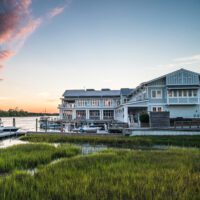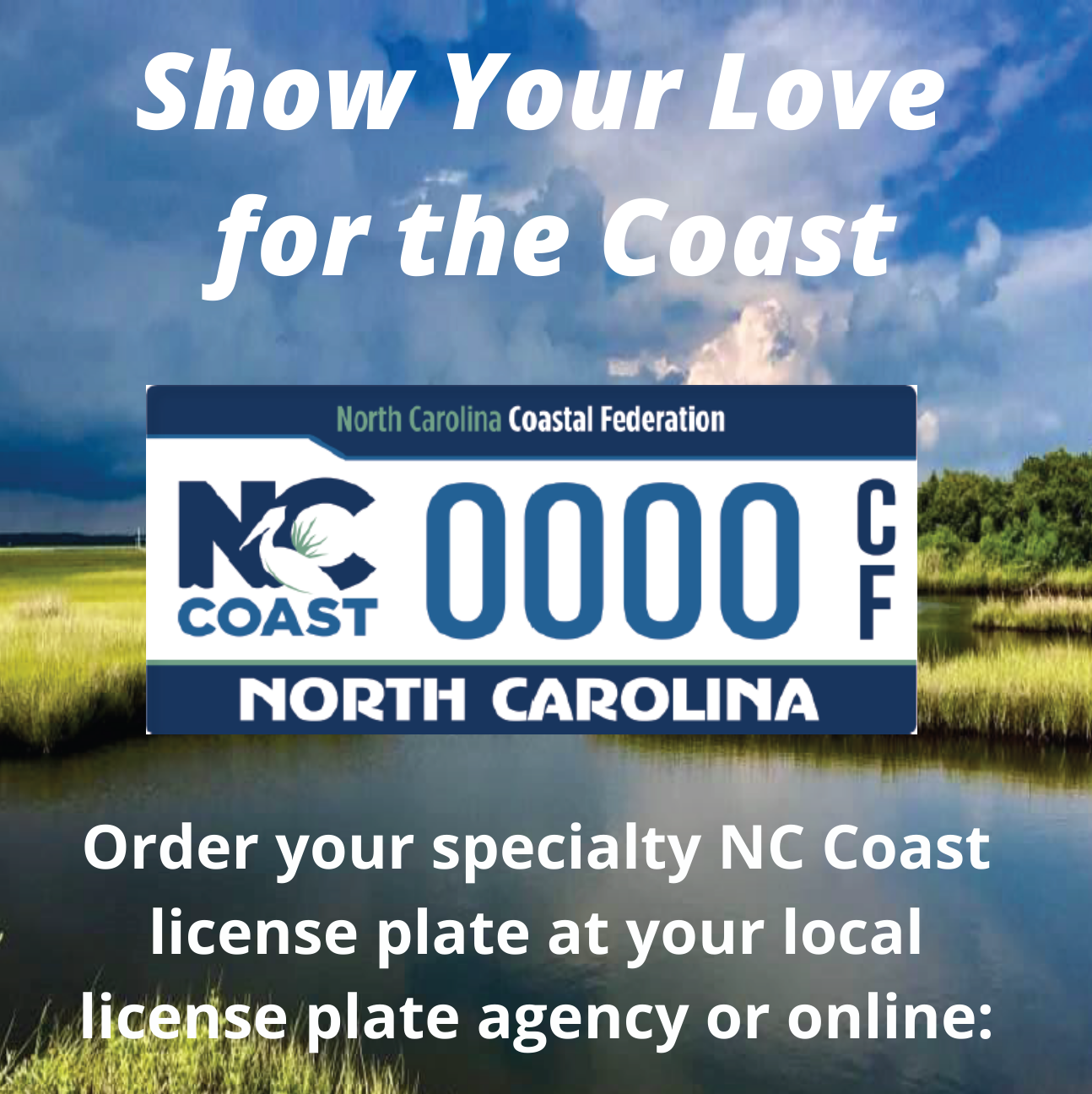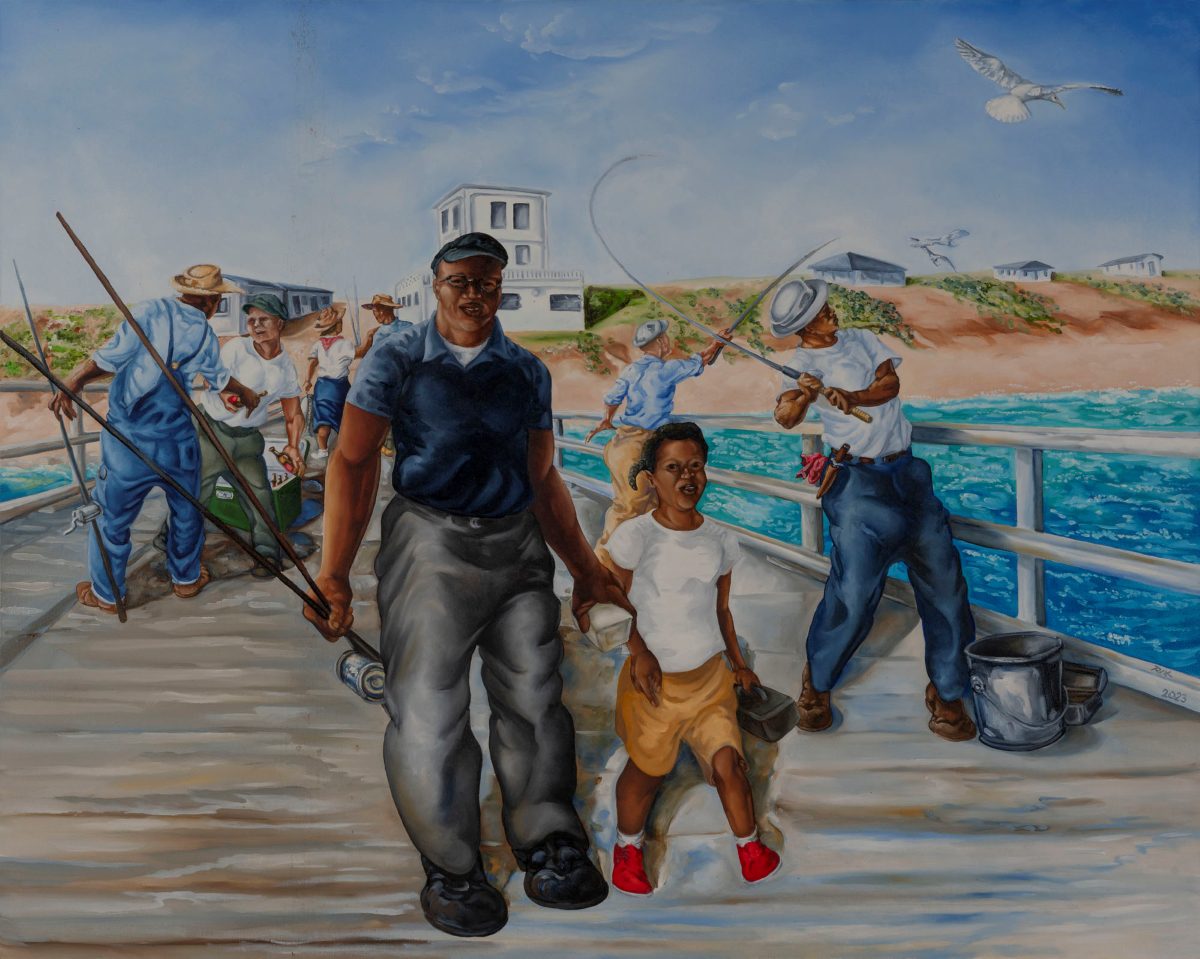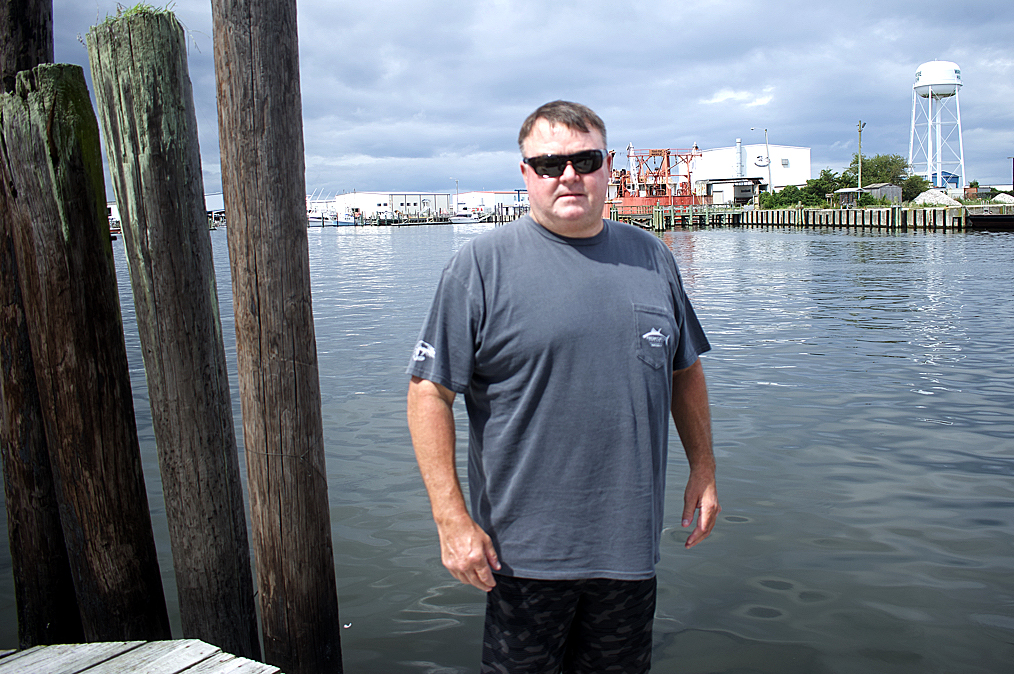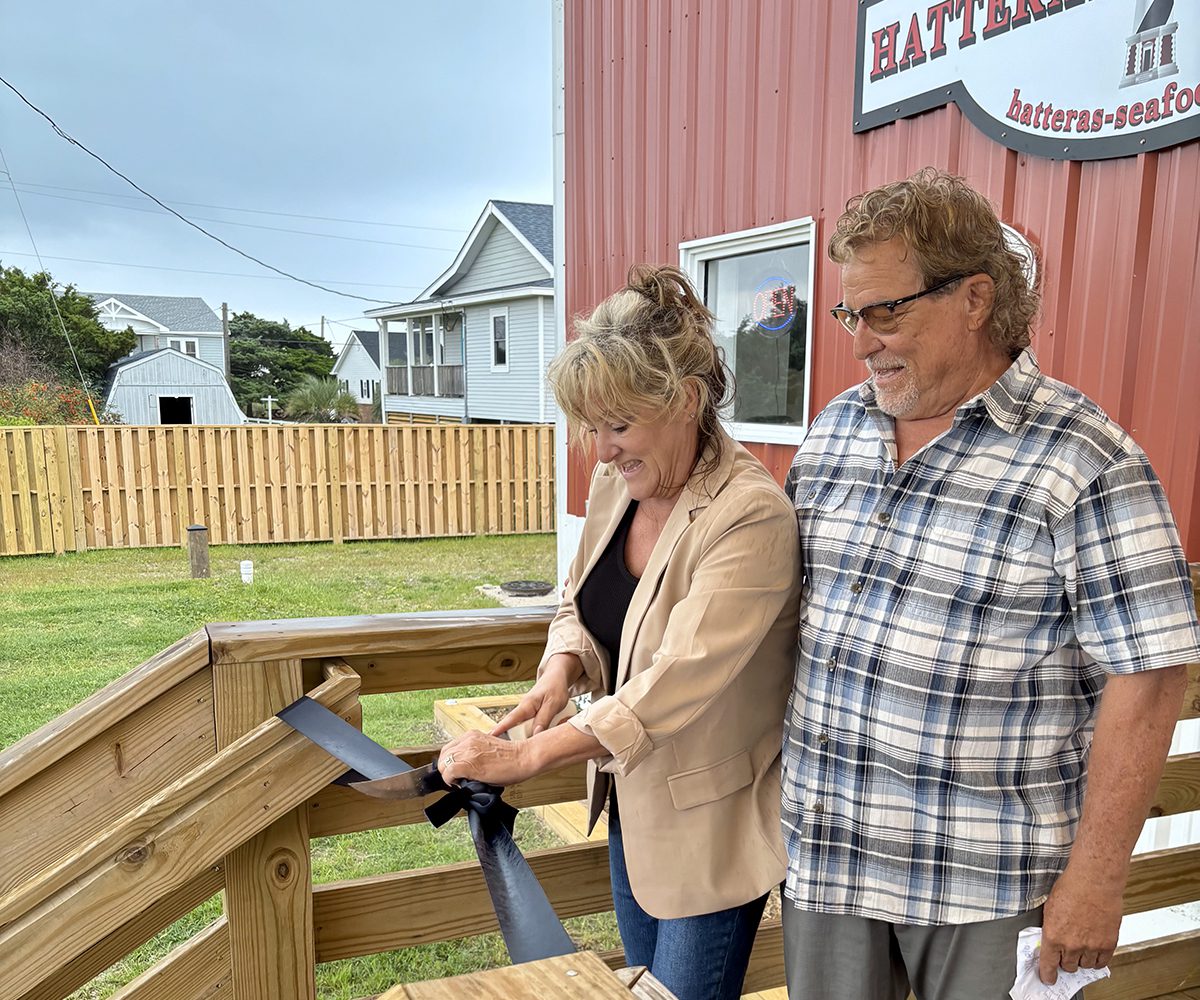COROLLA — Part of our difficulty making sense of climate change hinges on what was, what is and what will be, on top of figuring out how we feel about it. But in Will Freund’s calculation, it’s time to slip a kayak into the Atlantic Intracoastal Waterway and meander on up the coast to find out.
Aptly named “Climate, Kayak and Conversation,” Freund’s version of the classic American travel adventure will launch in March from Miami, Florida, with a destination 1,300 miles away in Norfolk, Virginia. His quest is simple: talk to people on their own turf about their own observations of rising seas and off-kilter weather.
Supporter Spotlight
“A big part of me doing this is because I’m realizing there’s a real disconnect in our society right now,” Freund, an educator at the Outer Banks Center for Wildlife Education in Corolla, told Coastal Review Online during a recent interview. “I feel like we are losing sight of what is happening.”
As the organizer of the three-month expedition, he said the idea came to him last year out of his sense of urgency to address climate change with people in a way that promotes respectful discussion and mutual understanding.
The project, announced in March, is being supported by nonprofit partner Environmental Educators of North Carolina as well as sponsors Kitty Hawk Kites, Kitty Hawk Surf Co., Ignite Life clothing, the North Carolina Chapter of the Sierra Club and donors to the project’s GoFundMe page, which details Freund’s goals. Also, Patagonia Atlanta is a donor to the project.
“I could just as easily go to all the wildlife centers and nature centers and conservancies along the way, but a lot of it would be preaching to the choir. I believe climate change has become climate crisis. I believe it’s become too politicized and over-generalized,” Freund said.
“Climate crisis,” he added, “is hard to wrap their heads around when it’s such a slow process.”
Supporter Spotlight
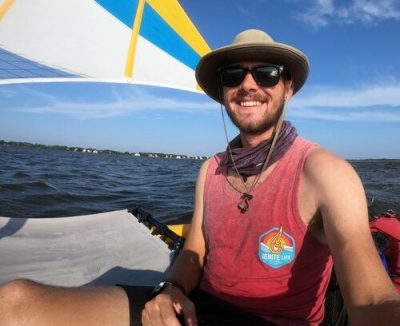
The estimated cost of the project, including equipment, is $15,000, Freund said. Any leftover funds will be donated to Environmental Educators, which as the project’s main sponsor is covering its financial liability through a formal agreement.
“More than ever, children and adults need to know how ecological systems work and why they matter,” Lauren Pyle, executive director for Environmental Educators of North Carolina, said in a press release. “The health of the environment is inseparable from humans’ well-being and economic prosperity.”
It’s not surprising that Freund, 24, is young, confident and adventuresome. But he has stuffed a lot of relevant experience into his life that has honed his love of the outdoors, especially the coast. Born in Ohio, he and his family moved to Raleigh when he was 10 years old. From the time he was a toddler, he would spend summers on the Outer Banks.
“I grew up on the water with my family, doing kayaking here and there,” he said. “I have lived and worked in many coastal communities already.”
When he was in college, he sailed with 30 people for five weeks on a 131-foot sailboat from Puerto Rico to Cape Cod as part of a study abroad program with the Sea Education Association.
“That semester was a big confidence builder for me,” Freund recalled, adding the experience taught him adaptability, resourcefulness and “gave me a humble view of Mother Nature.”
In 2015 and 2016, he worked as a hang glider instructor for Kitty Hawk Kites in Nags Head. Between securing a degree in biology from the College of Charleston in South Carolina, he also spent time on the Gulf Coast and coastal Georgia. As a result, Freund said, he has built a good network of friends and professional contacts he will be able to tap as he travels north along the waterway.
Freund said he wants to visit the communities that face the highest risk from sea level rise, based on scientific projections. Along the Intracoastal Waterway, the larger areas would include Miami, Florida, Charleston, South Carolina, and Norfolk, Virginia, as well as the smaller areas including Brunswick, Georgia, Georgetown, South Carolina, and Beaufort.
“I definitely want to get to a broad swath,” he said.
After embarking from South Miami, Freund said he expects he’ll stop at other places along the way, some preselected, some chosen by whim or weather.
The goal is to collect and record interviews and stories from people he meets and chats with during his stops and to hear how climate change is affecting their lives. Part of his mission also is to present citizen science workshops that can bring attention to climate change and help communities engage with their ecosystems.
“What I want to do is go into these coastal communities and talk to community leaders and activists and find out what’s happening in their jobs, in their communities,” he said. “We can’t just talk about facts; we need to have kind of a cultural exchange as well.”
Before he arrives at a selected area, he would have established a direct contact who will be able to meet him at the dock or marina. He would also make arrangements ahead of time to go to schools or community centers.
With Kitty Hawk Kites providing much of the equipment for the extent of the project, Freund will enjoy the benefit of top-notch gear, most especially his boat, a Hobie Mirage Adventure Island.
“This is not a standard kayak,” he explained. “It’s a sailing kayak in that it has two outboard pontoons as well as a sail, which allows it to be wind-powered as well as pedal-driven.”
The 17-foot vessel sports a single triangular sail and a 17-foot high mast. Fully rigged, without equipment, it weighs 250 to 300 pounds, he added, “at least twice as heavy as a regular kayak.”
Navigation in the Intracoastal Waterway is influenced by tide and wind conditions, he said, but kayakers can still experience nasty weather and other hazards on the water.
Freund would travel only during the day and tie-up or stay in town at night. If need be, he could anchor and set up a sleeping shelter on the kayak or, depending on whether the shoreline is available, he could pull the boat onto the beach and set up camp. But that could be difficult in Florida where there are a number of seawalls or in South Carolina, where about 50 miles of shoreline is on private land.
“I don’t want to be skirting the law,” he said. “I want to do this in the most on-the-books way.”
Freund may be a trailblazer. Few, if any, kayakers have gone 1,000 miles in the waterway for any cause, he said, but he has no intention of harkening back to the days of Lewis & Clark. He will be carrying up-to-date GPS, cell phone and satellite communication systems, including maps, apps and trackers.
“Safety is of utmost importance,” he said, with a nod to wild cards of timing and weather. “There are a lot of things I cannot control in this project.”
As a “pretty serious” wildlife and nature photographer, Freund said he will be documenting the project with camera equipment borrowed from sponsor Ignite Life, as well with a GoPro and standard video.
Along the way, he will be blogging. That and the visuals will be posted during on the project’s website and social media as he paddles from Miami to Cumberland Island, Georgia, to Hilton Head, South Carolina, to Bird Island and to Dismal Swamp, Virginia. If conditions allow, he will disembark at Town Point Park, along the south branch of the Elizabeth River in Norfolk, Virginia.
Ultimately, Freund would like to weave the entire adventure together into a documentary about the project to share with the public.
“I like to think I’ve really jumped off the deep end with this,” Freund said, alluding to an idiom he embraces. “I don’t tend to go half way.”


